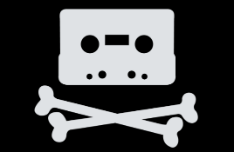Malaysia Blocks 246 Sites to Tackle Pirate Set-Top Box Epidemic
mardi 5 février 2019 à 10:11
Since their mainstream debut two decades ago, pirate websites have never been particularly inaccessible to the tech-savvy.
Today, however, streaming pirate movies and TV shows is simplicity itself, particularly when accessed through specially-configured hardware devices such as Android-style set-top boxes. Anyone comfortable with a smartphone interface is now educated enough to gain access to a mountain of infringing content.
As a result, these devices are now considered a major threat to entertainment industry companies all over the world and over in Asia, the situation is no different. In response to what is already an epidemic, authorities in Malaysia are now taking action to curtail the use of these devices.
To date, the Malaysian Communications and Multimedia Commission (MCMC) and Domestic Trade and Consumer Affairs Ministry have teamed up to block 246 sites utilized by piracy-configured set-top boxes to stream movies and TV shows to the masses.
“Based on the details and complaints from the rights’ owners which were made to the ministry, MCMC facilitated the shutdown,” MCMC Network Security and Enforcement Sector chief officer Zulkarnain Mohd Yasin told The Star.
While the names and details of the sites have not yet been made public, given their number it’s likely they are regularly accessible websites that are ‘scraped’ by software applications present on the Android devices. This is likely to become a game of cat-and-mouse as the sites switch domains and scrapers continue to adapt.
“We are working closely with the ministry and only through their complaints and the details provided to us, such as their domain and URLs, World Wide Web page address, on the illegal streaming sites, can we act to block the access,” Yasin added.
In parallel with regular blocking, Malaysian authorities are reportedly employing a secondary tactic to prevent the spread of Android-based devices that are illegal under laws other than copyright.
Under local law, all such devices must comply with standards laid down by the government, with the Standard and Industrial Research Institute of Malaysia (SIRIM) responsible for product quality assurance and subsequent certification.
Importers and distributors are required to submit samples of their devices to SIRIM which carries out tests to ensure they meet the standards set out by MCMC. If they do, they receive SIRIM accreditation. They do not, they are considered illegal.
Punishments for breaching such regulations are reported to be RM100,000 (which at current rates is around US$24,500), and/or six months in prison.
“We know who [these people] are and will act against them soon to discourage and stop these illegal boxes, which promote the illegal content streaming, which breaches copyright and intellectual property laws,” Yasin added.
Less than an hour away south by plane, Singapore is also taking steps to deal with the pirate set-top box phenomenon.
New legal proposals to be tabled this year will aim to prevent manufacturers, importers, distributors
There will also be an effort to prevent suppliers from providing assistance or instruction to customers on how to modify legally-supplied devices to perform infringing acts. If the law is adopted, it will also become an offense to customize a device provided by a user so that it can obtain infringing content.
Source: TF, for the latest info on copyright, file-sharing, torrent sites and more. We also have VPN reviews, discounts, offers and coupons.
 In 2016, the U.S. Government launched a public consultation to evaluate the impact and effectiveness of the DMCA’s Safe Harbor provisions.
In 2016, the U.S. Government launched a public consultation to evaluate the impact and effectiveness of the DMCA’s Safe Harbor provisions.



 Late 2014 The Pirate Bay went offline after Swedish police
Late 2014 The Pirate Bay went offline after Swedish police